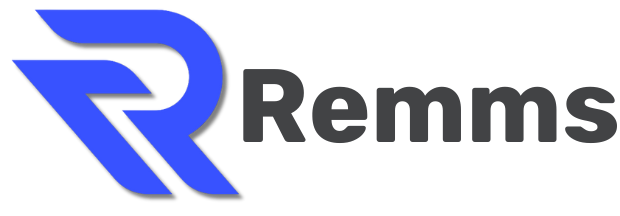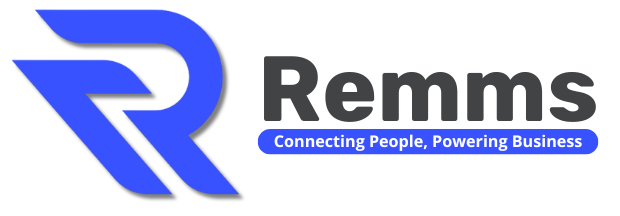
When it comes to hiring, interviews can make or break your decision. I’ve seen amazing resumes fall flat in interviews, and average resumes come to life when someone speaks about their work. That’s why I believe the interview is one of the most powerful tools we have in recruitment. But only if we use it right. Let’s talk about interview techniques for employers. Not just the basics, but how you can prepare, ask the right questions, and truly assess if a candidate is the right fit for your role and your team.
Why Interviews Matter More Than You Think
As someone who works in recruitment every day, I can tell you this: interviews are more than just a formality. They help you get beneath the surface of a resume. You learn how someone communicates, how they solve problems, and whether they’ll thrive in your work environment.
But here’s the catch if your interview isn’t structured or well thought out, you won’t get the answers you need. You might walk away with a gut feeling instead of real insights. And gut feelings can lead to hiring mistakes.
Before you even sit down with a candidate, how you structure your interview process matters a lot more than you might think. In fact, research from Harvard Business Review shows that unstructured interviews often lead to biased decisions and inconsistent results.
When every conversation is different, it becomes harder to compare candidates fairly. That’s why I recommend having a loose structure—something flexible, but consistent enough to guide you. This helps you stay focused on what really matters: the person’s ability to succeed in the role, not just how confident or likable they seem.
Preparation: Where It All Begins
Before I interview anyone, I get clear on what success in the role looks like. What do I expect this person to achieve in the first 90 days? What kind of mindset do they need? Do they need to work independently, or will they be part of a close-knit team?
Once I know that, I create a loose structure for the interview. This doesn’t mean it’s robotic it just means I know what I’m looking for. It also helps me make sure I treat each candidate fairly.
A good interview doesn’t happen on the spot. It happens because you’ve taken the time to prepare.
Once I have a clear understanding of the role, I always take the time to build a question set that aligns with it. This keeps me from going off-track or asking questions that don’t actually help with decision-making.
According to SHRM, having a consistent question framework also helps protect against legal risks and unconscious bias. It’s not about memorizing a script it’s about making sure every candidate gets a fair chance to show their strengths.
Asking the Right Questions
This is where things get interesting. One of the best interview techniques for employers is asking open-ended, real-world questions. You want to know how someone actually behaves in a work situation.
Instead of asking, “Are you good at problem-solving?” I’ll ask, “Can you tell me about a time when you faced a project setback and how you handled it?” See the difference?
These kinds of questions reveal patterns. They show how someone thinks under pressure, how they handle challenges, and how they work with others.
If you’re looking for good questions to ask on an interview, here are a few I often rely on:
- “What are you most proud of in your last role?”
- “How do you handle feedback?”
- “Tell me about a time when you had to learn something quickly.”
And if you’re from HR, you’ll already know the value of strong HR interview questions. These might touch on communication, ethics, teamwork, or conflict resolution. The goal is always the same get past rehearsed answers and understand the real person behind the resume.
Don’t Forget Culture Fit
Technical skills matter, especially in industries like IT. But culture fit can’t be ignored. I’ve worked with several top IT staffing firms, and they’ll all tell you skills get you in the door, but culture fit determines how long you stay.
So I always ask questions that help me understand a candidate’s values and preferences. Things like:
- “Describe your ideal work environment.”
- “How do you like to receive feedback?”
- “What kind of manager brings out your best work?”
You can tell a lot from the way someone answers. And it helps you figure out if they’ll click with your existing team.
I’ve also learned that fair and structured interviews lead to better, more diverse hiring decisions. When you use the same standards, you open the door to candidates from different backgrounds who might not fit the traditional mold but still bring incredible value.
Harvard Business School recommends going a step further by using tools like work samples and structured scoring to keep things objective. I’ve used these methods myself and seen how they can reveal hidden talent that might otherwise get overlooked.
Give Candidates a Chance to Ask Questions
One thing I always leave time for is the candidate’s questions. The interview questions to ask employer part is important for both sides. It shows how much research they’ve done. It also tells you what matters to them.
Sometimes candidates ask about team structure, company growth, or how performance is measured. These are great signs they’re thinking long-term. Other times, they ask nothing. That’s usually a red flag for me.
So if you’re hiring, make space for this. Listen carefully to what candidates ask. It might reveal more than their answers did.
Interviewing in Tech? Add an Extra Layer
If you’re hiring in the IT space, interviews need an added layer. You’re not just assessing soft skills you need to see how someone solves technical problems. Many IT staffing solution providers recommend a mix of technical tests and live problem-solving.
In my experience, it’s best not to rely too heavily on automated tests. Pair them with a human conversation. Ask them how they approached the problem, why they chose a specific solution, and what they’d do differently next time. This gives you more insight than a score ever will.
Whether you’re working with a boutique agency or one of the top IT staffing firms, the ability to dig deeper through interviews remains key.
After the Interview: Evaluate Fairly
Once the interview is done, don’t rush your decision. I use a simple scorecard based on the must-haves I listed during prep. It keeps me focused. Instead of getting distracted by charisma or confidence, I rate candidates based on the role requirements.
Then I compare notes with other interviewers. It’s always good to get multiple perspectives, especially when hiring for leadership or niche roles.
And here’s a tip don’t wait too long to follow up. Candidates remember how you made them feel. Whether it’s a yes or a no, clear communication reflects well on your company.
Final Thoughts
The interview process doesn’t have to feel like a guessing game. When you take the time to prepare, ask meaningful questions, and listen with intention, you’re more likely to find someone who’s not just qualified but ready to thrive in your environment.
If you’re an employer looking to improve your hiring process, refining your interview techniques for employers is one of the best places to start. Whether you’re screening for soft skills or technical strength, asking the right questions makes all the difference.
And if you ever feel overwhelmed, remember you don’t have to do it alone. Lean on experts, partner with IT staffing solution providers, and keep refining your approach. The right people are out there. Your interview process just needs to help them shine.

